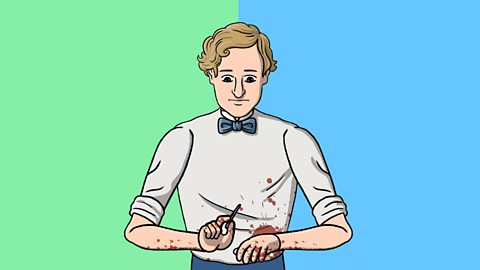Victorian schools are known for their harsh discipline. Find out how you would have learned in the 'schoolroom'.
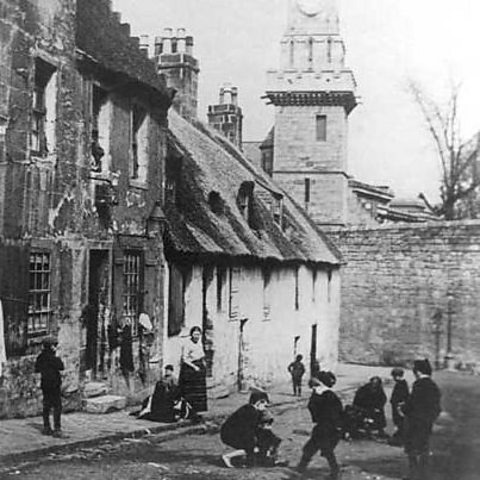
Children in Victorian times
At the start of the Victorian era, most children worked long days to support their families.
School was not free and only richer families could send their children to school.
Some rich children would be taught at home by a governess.
With no school to go to, many children hung around the streets. Some ended up in jail for begging or causing trouble.
'Ragged' Schools were set up in 1844 for children who were in extreme poverty. These schools offered them free lessons and a meal every day.
In 1872 the Education (Scotland) Act made it the law that all children aged 5 to 13 years old had to go to school.


At school
The Scots word for a male teacher was dominie. A dominie taught older children and boys. Female teachers were called mistresses. They taught younger children and girls.
A classroom was called a 'schoolroom'. Desks were bolted to the floor in rows facing the front.
High windows stopped pupils looking outside. There were rarely any posters or decoration on the walls.
There was no electric lighting. There were gas lamps instead. These made the rooms gloomy and stuffy.
Classes were overcrowded, sometimes with over 100 pupils listening to the teacher and copying what was written on the blackboard.
Pupils wrote with chalk on a slate tablet. These were cheaper than paper and could be reused.
Learning your lessons
The most important lessons were in reading, writing, and arithmetic (maths) know as the 'three Rs' .
Lessons were taught by reading and copying sentences down from the teacher's blackboard, or chanting things till they were perfect.
There was no group work or chance to ask questions.
PE lessons took place in the playground and were called drill.
After lunch the boys were taught woodworking and other skills. Girls were taught cooking, and housework skills like washing.
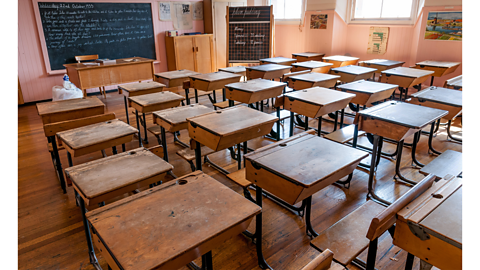
Image caption, This is how a classroom would have looked with the individual desks arranged in rows facing the front
1 of 6
Punishment
Victorian schools were very strict. If you did anything wrong you would be punished.
- If you weren't paying attention you would be made to wear a dunce hat and sit in the corner
- You might be made to do lines which meant writing the same sentence over and over again without mistakes, sometimes hundreds of times
- If you were very unlucky you might be caned. This meant being hit on the backs of the legs or on the hands with a wooden cane.
More on Victorians
Find out more by working through a topic
- count17 of 19
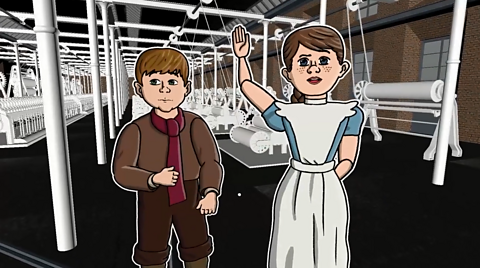
- count18 of 19

- count19 of 19
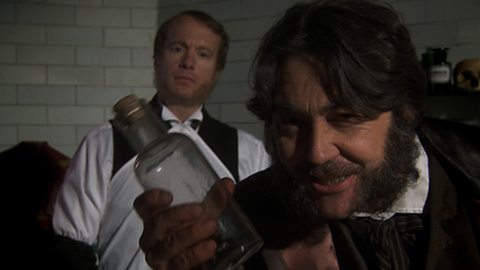
- count1 of 19
